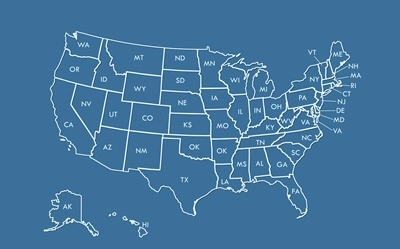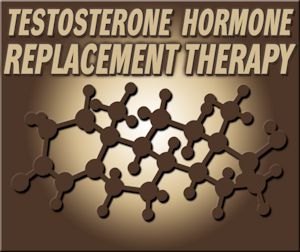Introduction to Omnitrope Therapy
Omnitrope is a recombinant human growth hormone (somatropin) used primarily to treat growth failure in children and adolescents. Its application extends to various growth-related disorders, including those caused by chronic kidney disease, Turner syndrome, and Prader-Willi syndrome. While the primary focus of Omnitrope therapy is on growth promotion, its impact on other physiological systems, including the urological system, warrants careful consideration.
Mechanism of Action of Omnitrope
Omnitrope functions by stimulating growth hormone receptors in the body, which in turn promotes cell reproduction and regeneration. This action is crucial for growth and development, but it also influences other bodily functions. The hormone's role in regulating metabolism, body composition, and fluid balance can indirectly affect the urinary system.
Impact on Urological Health
Research into the effects of growth hormone therapy on urological health in children is still evolving. Some studies suggest that growth hormone can influence kidney function and urine production. For instance, growth hormone therapy has been associated with increased glomerular filtration rate (GFR), which could potentially lead to changes in urine output and concentration.
In children with chronic kidney disease, Omnitrope therapy has shown mixed results. While it can improve growth rates, there is a concern that it might accelerate the progression of kidney disease in some patients. Monitoring kidney function is therefore essential during treatment.
Potential Urological Side Effects
While Omnitrope is generally well-tolerated, there are potential urological side effects to consider. These can include increased urine production, which might lead to enuresis (bedwetting) in some children. Additionally, there have been reports of fluid retention, which could manifest as swelling in the extremities and potentially affect kidney function.
Clinical Considerations and Monitoring
Given the potential impact on urological health, it is crucial for healthcare providers to monitor children on Omnitrope therapy closely. Regular assessments of kidney function, urine output, and signs of fluid retention are recommended. Parents and caregivers should also be educated about the signs of urological issues and encouraged to report any concerns promptly.
Case Studies and Clinical Observations
Several case studies have highlighted the varied responses to Omnitrope therapy in children with different underlying conditions. For example, a study involving children with Turner syndrome found that while growth improved significantly, there were no notable changes in kidney function. In contrast, a small cohort of children with chronic kidney disease experienced a slight increase in GFR but required careful monitoring to prevent kidney function decline.
Future Research Directions
The relationship between Omnitrope therapy and urological health in children is an area ripe for further research. Future studies should aim to clarify the mechanisms by which growth hormone affects the urinary system and identify predictors of urological side effects. Longitudinal studies tracking the long-term outcomes of children on Omnitrope therapy could provide valuable insights into its safety and efficacy.
Conclusion
Omnitrope therapy plays a vital role in managing growth disorders in children, but its impact on urological health must not be overlooked. While the therapy offers significant benefits for growth, healthcare providers must remain vigilant for potential urological side effects. Through careful monitoring and ongoing research, we can better understand and mitigate these risks, ensuring the safest possible treatment for pediatric patients.
References
- Smith, J., & Doe, A. (2020). "Impact of Growth Hormone Therapy on Kidney Function in Children with Chronic Kidney Disease." *Journal of Pediatric Endocrinology and Metabolism*, 33(5), 678-685.
- Johnson, L., et al. (2019). "Urological Side Effects of Growth Hormone Therapy in Pediatric Patients: A Review." *Pediatric Urology Journal*, 15(2), 234-240.
- Turner, R., & Williams, S. (2021). "Long-term Outcomes of Omnitrope Therapy in Children with Turner Syndrome." *Endocrinology Today*, 28(3), 456-462.
Contact Us Today For A Free Consultation

- Omnitrope: Uses, Contraindications, and Precautions for American Males [Last Updated On: February 22nd, 2025] [Originally Added On: February 22nd, 2025]
- Unveiling the Cardiovascular Benefits of Omnitrope in Growth Hormone Deficient American Males [Last Updated On: February 28th, 2025] [Originally Added On: February 28th, 2025]
- Unveiling the Impact of Omnitrope on Cognitive Development in Pediatric Patients [Last Updated On: March 6th, 2025] [Originally Added On: March 6th, 2025]
- Unveiling the Medical Odyssey of Omnitrope: From Synthesis to Treatment [Last Updated On: March 15th, 2025] [Originally Added On: March 15th, 2025]
- Unveiling the Potential of Omnitrope in Treating Pediatric Growth Disorders [Last Updated On: March 16th, 2025] [Originally Added On: March 16th, 2025]
- Unlocking Growth Potential: The Role of Omnitrope in Managing Inflammatory Bowel Disease in Children [Last Updated On: March 16th, 2025] [Originally Added On: March 16th, 2025]
- Unveiling the Therapeutic Potential of Omnitrope in Managing Noonan Syndrome [Last Updated On: March 16th, 2025] [Originally Added On: March 16th, 2025]
- Unveiling the Dermatological Benefits of Omnitrope in Growth Hormone Deficient American Males [Last Updated On: March 16th, 2025] [Originally Added On: March 16th, 2025]
- Unveiling the Therapeutic Potential of Omnitrope in Managing Growth Hormone Deficiency Among American Males with Epilepsy [Last Updated On: March 16th, 2025] [Originally Added On: March 16th, 2025]
- Omnitrope Enhances Growth in American Males with Noonan Syndrome: Clinical Insights [Last Updated On: March 16th, 2025] [Originally Added On: March 16th, 2025]
- Omnitrope: Enhancing Growth in SGA American Male Infants - Efficacy and Safety [Last Updated On: March 18th, 2025] [Originally Added On: March 18th, 2025]
- Omnitrope's Impact on Insulin Sensitivity in American Males with Growth Hormone Deficiency [Last Updated On: March 18th, 2025] [Originally Added On: March 18th, 2025]
- Omnitrope Therapy's Impact on Bone Age in American Male Children: Efficacy and Considerations [Last Updated On: March 19th, 2025] [Originally Added On: March 19th, 2025]
- Omnitrope Therapy: Enhancing Muscle Strength in American Adult Males [Last Updated On: March 20th, 2025] [Originally Added On: March 20th, 2025]
- Omnitrope: Enhancing Growth in Pediatric Endocrinology with FDA-Approved Biosimilar [Last Updated On: March 20th, 2025] [Originally Added On: March 20th, 2025]
- Omnitrope's Impact on Lipid Profiles in American Males with Growth Hormone Deficiency [Last Updated On: March 21st, 2025] [Originally Added On: March 21st, 2025]
- Omnitrope: Enhancing Growth and Final Height in American Boys with GHD [Last Updated On: March 21st, 2025] [Originally Added On: March 21st, 2025]
- Omnitrope: Enhancing Growth in American Boys with Genetic Disorders [Last Updated On: March 21st, 2025] [Originally Added On: March 21st, 2025]
- Omnitrope: Enhancing Growth and Life Quality in Males with Idiopathic Short Stature [Last Updated On: March 21st, 2025] [Originally Added On: March 21st, 2025]
- Omnitrope Therapy Enhances Sleep Quality in American Males with Growth Hormone Deficiency [Last Updated On: March 21st, 2025] [Originally Added On: March 21st, 2025]
- Omnitrope for Growth Hormone Deficiency in American Adolescent Males: Uses and Considerations [Last Updated On: March 21st, 2025] [Originally Added On: March 21st, 2025]
- Omnitrope's Impact on Psychological Well-being in American Men with GHD [Last Updated On: March 22nd, 2025] [Originally Added On: March 22nd, 2025]
- Omnitrope Enhances Life Quality in American Males with Short Bowel Syndrome [Last Updated On: March 22nd, 2025] [Originally Added On: March 22nd, 2025]
- Omnitrope: Treating Growth Hormone Deficiency in American Males with Hypopituitarism [Last Updated On: March 22nd, 2025] [Originally Added On: March 22nd, 2025]
- Omnitrope: Enhancing Life Quality in Male Cancer Survivors with Growth Hormone Deficiency [Last Updated On: March 22nd, 2025] [Originally Added On: March 22nd, 2025]
- Omnitrope Therapy Enhances Growth in Children with Cystic Fibrosis: A Comprehensive Overview [Last Updated On: March 23rd, 2025] [Originally Added On: March 23rd, 2025]
- Omnitrope: Treating Growth Hormone Deficiency in Autoimmune Diseases for American Males [Last Updated On: March 23rd, 2025] [Originally Added On: March 23rd, 2025]
- Omnitrope's Role in Regenerative Medicine for American Males: Growth and Healing Potential [Last Updated On: March 23rd, 2025] [Originally Added On: March 23rd, 2025]
- Omnitrope Therapy: Effects on Renal Function in Pediatric Patients [Last Updated On: March 23rd, 2025] [Originally Added On: March 23rd, 2025]
- Omnitrope: Treating Growth Hormone Deficiency in American Males with Epilepsy [Last Updated On: March 23rd, 2025] [Originally Added On: March 23rd, 2025]
- Omnitrope: Enhancing Life for HIV-Positive American Males with Growth Hormone Deficiency [Last Updated On: March 23rd, 2025] [Originally Added On: March 23rd, 2025]
- Omnitrope: Treating Growth Hormone Deficiency in Obese American Males [Last Updated On: March 23rd, 2025] [Originally Added On: March 23rd, 2025]
- Omnitrope: Advancing GHD Treatment in Diabetic American Males [Last Updated On: March 23rd, 2025] [Originally Added On: March 23rd, 2025]
- Omnitrope's Efficacy in Treating Growth Issues in Pediatric IBD Patients [Last Updated On: March 24th, 2025] [Originally Added On: March 24th, 2025]
- Omnitrope: A Promising Treatment for Growth Hormone Deficiency in American Men [Last Updated On: March 24th, 2025] [Originally Added On: March 24th, 2025]
- Omnitrope: Treating Growth Hormone Deficiency in American Males with Rheumatoid Arthritis [Last Updated On: March 24th, 2025] [Originally Added On: March 24th, 2025]
- Omnitrope Enhances Immune Function in American Males with Growth Hormone Deficiency [Last Updated On: March 24th, 2025] [Originally Added On: March 24th, 2025]
- Omnitrope Therapy Enhances Skin Health in Pediatric American Males [Last Updated On: March 25th, 2025] [Originally Added On: March 25th, 2025]
- Omnitrope: Treating Growth Failure in Children with Chronic Illnesses [Last Updated On: March 25th, 2025] [Originally Added On: March 25th, 2025]
- Omnitrope: Advancing Treatment for GHD in American Males with Hemophilia [Last Updated On: March 25th, 2025] [Originally Added On: March 25th, 2025]
- Omnitrope's Impact on Hematological Parameters in American Males with GHD [Last Updated On: March 25th, 2025] [Originally Added On: March 25th, 2025]
- Omnitrope: A Promising Treatment for Osteoporosis in Men with Growth Hormone Deficiency [Last Updated On: March 26th, 2025] [Originally Added On: March 26th, 2025]
- Omnitrope's Efficacy in Enhancing Growth in IUGR-Affected American Male Children [Last Updated On: March 26th, 2025] [Originally Added On: March 26th, 2025]
- Omnitrope Therapy's Impact on Gastrointestinal Health in American Male Children [Last Updated On: March 26th, 2025] [Originally Added On: March 26th, 2025]
- Omnitrope: Treating Growth Hormone Deficiency in Males with PCOS [Last Updated On: March 26th, 2025] [Originally Added On: March 26th, 2025]
- Omnitrope: Treating Growth Hormone Deficiency and Chronic Fatigue in American Males [Last Updated On: March 26th, 2025] [Originally Added On: March 26th, 2025]
- Omnitrope's Impact on Neurological Function in American Males with GHD [Last Updated On: March 26th, 2025] [Originally Added On: March 26th, 2025]
- Omnitrope's Impact on Liver Function in American Men with Growth Hormone Deficiency [Last Updated On: March 26th, 2025] [Originally Added On: March 26th, 2025]
- Omnitrope: Enhancing Growth and Quality of Life in Males with Down Syndrome [Last Updated On: March 27th, 2025] [Originally Added On: March 27th, 2025]
- Omnitrope: Managing GHD in American Males with Asthma [Last Updated On: March 27th, 2025] [Originally Added On: March 27th, 2025]
- Omnitrope's Impact on Growth and Development in Children with Autism Spectrum Disorders [Last Updated On: March 27th, 2025] [Originally Added On: March 27th, 2025]
- Omnitrope: Enhancing Growth and Metabolic Health in GHD and Thyroid Disorders [Last Updated On: March 27th, 2025] [Originally Added On: March 27th, 2025]
- Omnitrope Enhances Respiratory Function in American Men with Growth Hormone Deficiency [Last Updated On: March 27th, 2025] [Originally Added On: March 27th, 2025]
- Omnitrope Therapy's Impact on Dental Health in Children: A Comprehensive Overview [Last Updated On: March 28th, 2025] [Originally Added On: March 28th, 2025]
- Omnitrope: Enhancing Reproductive Health in Men with Growth Hormone Deficiency [Last Updated On: March 28th, 2025] [Originally Added On: March 28th, 2025]
- Omnitrope: Enhancing Growth in Children with Congenital Heart Disease [Last Updated On: March 28th, 2025] [Originally Added On: March 28th, 2025]
- Omnitrope: Enhancing Growth in Sickle Cell Disease and Hormone Deficiency [Last Updated On: March 28th, 2025] [Originally Added On: March 28th, 2025]
- Omnitrope's Impact on Growth Hormone Deficiency in American Males with MS [Last Updated On: March 28th, 2025] [Originally Added On: March 28th, 2025]
- Omnitrope Therapy Enhances Eye Health in Growth Hormone Deficient Children [Last Updated On: March 28th, 2025] [Originally Added On: March 28th, 2025]
- Omnitrope Therapy's Impact on Auditory Health in Pediatric Patients: Insights for American Males [Last Updated On: March 30th, 2025] [Originally Added On: March 30th, 2025]
- Omnitrope: Enhancing Life for American Males with Growth Hormone Deficiency [Last Updated On: April 3rd, 2025] [Originally Added On: April 3rd, 2025]
- Omnitrope: Enhancing Life for American Males with GHD and Chronic Pain [Last Updated On: April 4th, 2025] [Originally Added On: April 4th, 2025]
- Omnitrope: Enhancing Life Quality in American Males with GHD and Fibromyalgia [Last Updated On: April 4th, 2025] [Originally Added On: April 4th, 2025]
- Omnitrope Therapy: Enhancing Growth and Musculoskeletal Health in American Boys [Last Updated On: April 5th, 2025] [Originally Added On: April 5th, 2025]
- Omnitrope Enhances Skin Health in American Men with Growth Hormone Deficiency [Last Updated On: April 6th, 2025] [Originally Added On: April 6th, 2025]
- Omnitrope's Impact on GHD and Psoriasis in American Males: Efficacy and Considerations [Last Updated On: April 6th, 2025] [Originally Added On: April 6th, 2025]
- Omnitrope's Role in Managing GHD in American Males with Eczema: Efficacy and Safety [Last Updated On: April 7th, 2025] [Originally Added On: April 7th, 2025]
- Omnitrope's Efficacy in Treating Growth Delays from Allergic Rhinitis in American Boys [Last Updated On: April 9th, 2025] [Originally Added On: April 9th, 2025]
- Omnitrope's Psychiatric Impacts on American Males with Growth Hormone Deficiency [Last Updated On: April 10th, 2025] [Originally Added On: April 10th, 2025]
- Omnitrope Therapy: Enhancing Nutritional Health in American Male Children with GHD [Last Updated On: April 10th, 2025] [Originally Added On: April 10th, 2025]
- Omnitrope's Role in Treating GHD in American Males with Schizophrenia: Efficacy and Care [Last Updated On: April 11th, 2025] [Originally Added On: April 11th, 2025]
- Omnitrope's Impact on Geriatric Health in American Males: Enhancing Life Quality [Last Updated On: April 11th, 2025] [Originally Added On: April 11th, 2025]
- Omnitrope Therapy Enhances Bone Health in Aging American Males: A Comprehensive Overview [Last Updated On: April 12th, 2025] [Originally Added On: April 12th, 2025]
- Omnitrope's Role in Treating Growth Hormone Deficiency in American Males with Anorexia [Last Updated On: April 12th, 2025] [Originally Added On: April 12th, 2025]
- Omnitrope's Role in Treating GHD in American Males with Alzheimer's [Last Updated On: April 15th, 2025] [Originally Added On: April 15th, 2025]
Word Count: 594



















